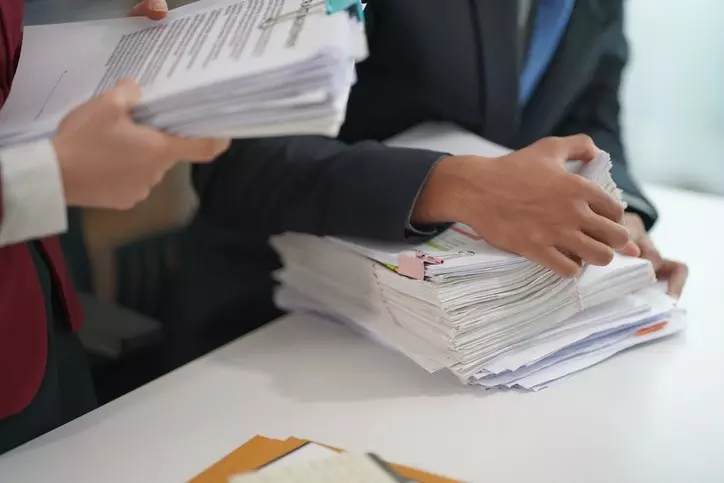How a late-night warning had CBI team rushing from Bern with Bofors docs
Bern to Zurich to Mumbai to Delhi...this tale so far has remained confined within a small group of CBI officials tasked with probing the gun deal in 1999


Among the folklore surrounding the Bofors scandal, which exploded on the political front in India almost four decades ago, this tale so far has remained confined within a small group of officials of the Central Bureau of Investigation (CBI) tasked with probing the gun deal.
What it involved was a late-night call from the Indian embassy in Bern, which led to an early-morning dash to Zurich by road and then a hurried flight to Mumbai by the CBI team.
Their task? To ensure the passage of crucial Bofors gun deal documents, received from Swiss authorities, to India, beating obstacles.
The background
In March 1986, India decided to buy 410 Bofors 155mm field artillery guns from the Swedish manufacturer, then known as AB Bofors, for ₹1,400 crore.
In a Swedish Radio broadcast a year later, a whistleblower claimed that the gun company paid bribes to top Indian politicians to secure the deal. During the course of the next few months, it was also revealed that bribe money was paid to middlemen in the deal through their accounts in Swiss banks, which are known for maintaining client secrecy.
Also Read: Bofors scam explained- Part 1
But relentless efforts by the CBI and deft handling by the non-Congress party-ruled governments resulted in the release of the first set of Swiss bank documents in 1997. The documents had details of payments made to Italian businessman Ottavio Quattrocchi and AB Bofors agent Win Chaddha.
In December 1999, a CBI team again went to Switzerland for yet another set of documents which mainly had details of payments made by AB Bofors to the three Hinduja brothers — Srichand, Gopichand, and Prakash.
CBI team in Bern
Indian Police Service (IPS) officer OP Galhotra, then working in the CBI on deputation as Superintendent of Police (SP), was part of the team that went to the Swiss capital Bern.
He was a qualified chartered accountant (CA) before being inducted in the IPS. Given his background as a CA, he had been roped into the probe team after the agency had received the first set of bank documents in 1997.
When the turn came to get another set of documents from Switzerland in 1999, Galhotra too went there as a member of the probe team.
The Swiss authorities handed over the bank documents to the Indian team and, as a courtesy to the visiting officers, the Indian ambassador in Switzerland invited them for dinner. This by all accounts was a relaxed affair as the task had been completed.
Late-night exit
Following the dinner, the CBI officials went back to their hotel. Rather late in the night, they got a call from the ambassador, who told them that per information available with him, efforts were on to stop the CBI team from taking the bank documents to India.
They were told that a court order might be secured the next morning to stall the transfer of documents.
Also Read: Bofors scam explained - Part 2
“The message from the ambassador left us in a quandary. It was decided that the team members should leave Switzerland with the documents post-haste before any possible court injunction could be granted.
"We decided to leave Bern by road to Zurich, a two-hour drive. From Zurich, we took an early-morning flight to Mumbai, and then a connecting flight to Delhi,” recalled Galhotra in a conversation with The Federal. A 1985 batch IPS officer, he later retired as Rajasthan Director General of Police.
Charges filed
The set of documents brought in 1999 resulted in charges being filed against the three Hinduja brothers in October 2000. This was the CBI’s second chargesheet in the case. The first chargesheet was filed in October 1999 against alleged middlemen Win Chaddha and Ouattrocchi, SK Bhatnagar (defence secretary at the time of the Bofors deal), former Bofors company chief Martin Ardbo, and the company AB Bofors.
Also Read: CBI withdraws plea seeking to further investigate Bofors case
Former Prime Minister Rajiv Gandhi was charged in the case but was assassinated in 1991 before it came up for trial. During the pendency of the case, both Bhatnagar (cancer) and Chadhha (heart attack) passed away in 2001.
In 2004, the Delhi High Court cleared Rajiv Gandhi of being involved in the matter and dropped the charges under the Prevention of Corruption Act. The next year, in 2005, the High Court dropped all charges against the three Hinduja brothers too.
The CBI, despite many efforts, could not secure the extradition of Quattrocchi — first from Malaysia and later from Argentina — and decided to withdraw prosecution against him too in 2012. A year later, Quattrocchi died in Milan, Italy.

